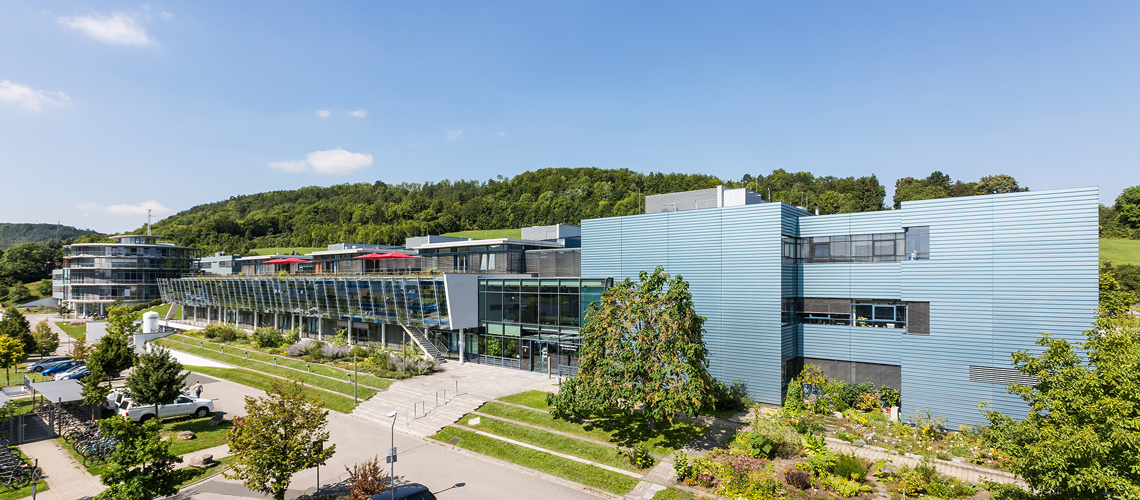Job Offer from July 17, 2023
The Fritz-Haber-Institut (FHI) in Berlin-Dahlem is one of the most renowned institutes within the Max Planck Society (MPG), Germany’s organization for basic research. At the FHI, scientists from all over the world are engaged in fundamental studies in the field of chemical physics at interfaces and surfaces, catalysis research and molecular physics.
The Multiscale Modeling from the Electron to the Reactor Group at the Theory Department of the Fritz Haber Institute is offering a PhD position (m/f/d) on the development of Machine Learning enhanced Bayesian parameter estimation of multiscale kinetic models.
The research of the group concentrates on the development coarse-graining strategies which allow to transfer the detailed information available from atomistic and electronic structure simulations to models of macroscopic behavior. A special focus is kinetic Monte Carlo simulations and their coupling with macroscopic models. Here, we have been developing new algorithms and corresponding software, both for the simulations as well as for analyses of their results. The group, the department and the FHI offer an excellent and inspiring environment for outstanding research.
The project
The PhD student will be part of a collaborative interdisciplinary project within the Cluster of Excellence “Unifying Systems in Catalysis” with the focus on CO2 reduction. In this joint project, our collaborators will develop so-called first principles kinetic Monte Carlo (1p-kMC) model for the activity of a catalysts. While these kind of models are the physically most sound description of activity, they suffer from the rather low accuracy of state-of-art electronic structure simulations, employed to determine the kinetic parameters. The purpose of the PhD project is to develop of Bayesian approaches to post-correct 1p-kMC models on basis of experimental kinetic data from our collaborators. A particular challenge will be to sample from the Bayesian posterior distribution on the parameter space as the incorporation of experimental results will lead to a strong localization of the distribution. Prevalent sampling approaches typically require excessive numbers of samples for such cases leading prohibitive computational costs as each sample corresponds to, at least, one 1p-kMC simulation. To lift this problem, methods from machine learning shall be employed to enhance the sampling, e.g. Normalizing Flow Neural Networks which learn the distribution from data. The thereby obtained improved model will allow to analyze the working principles behind the activity of a catalyst with an unprecedented accuracy and confidence.
This is a part time position (2/3) and the salary is according to TVöD/E13. The project is supposed to start anytime in 2023.
Your profile
The applicant should hold a master degree (or equivalent) in mathematics, science, engineering or a related discipline. Knowledge of programming and a background in simulation are presumed. Experience with the more specific subjects of the project, such as catalysis, Bayesian modeling or stochastic simulation, is beneficial, but not required.
Applications for this position are only accepted via our online application portal. Closing date: Applications will be accepted until the position is filled. We thank all applicants for their interest; however, only those individuals selected for an interview will be contacted.
The FHI strives for gender equality and diversity. We welcome applications from all backgrounds.
The Max Planck Society is committed to increasing the number of individuals with disabilities in its workforce and therefore encourages applications from such qualified individuals. Furthermore, the Max Planck Society seeks to increase the number of women in research and therefore explicitly encourages women to apply.
Berlin
The Fritz Haber Institute (FHI) is located in the quiet south-west of Gemany’s capital Berlin, which is a large, tolerant and cosmopolitan city. Berlin offers a wide variety of culture, art, music, and outdoor opportunities.
If you have any questions, please contact Dr. Sebastian Matera (matera@fhi-berlin.mpg.de)
